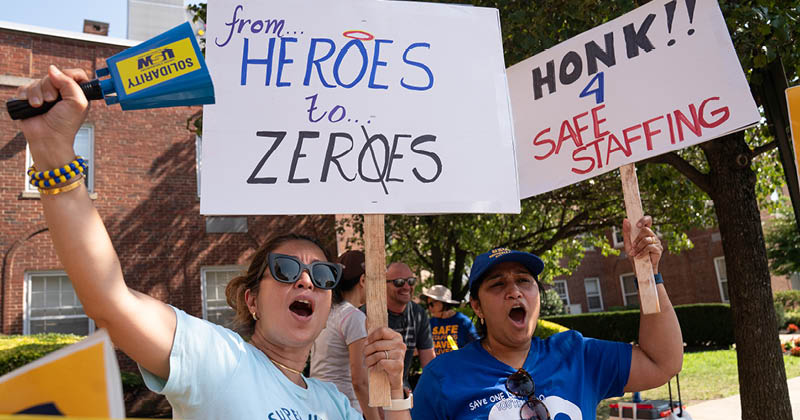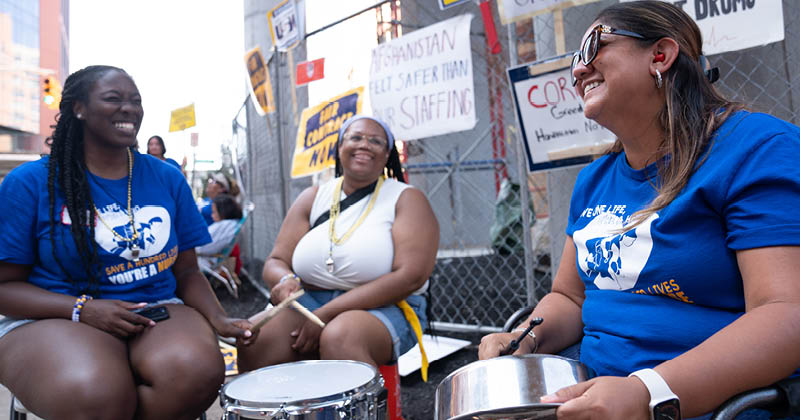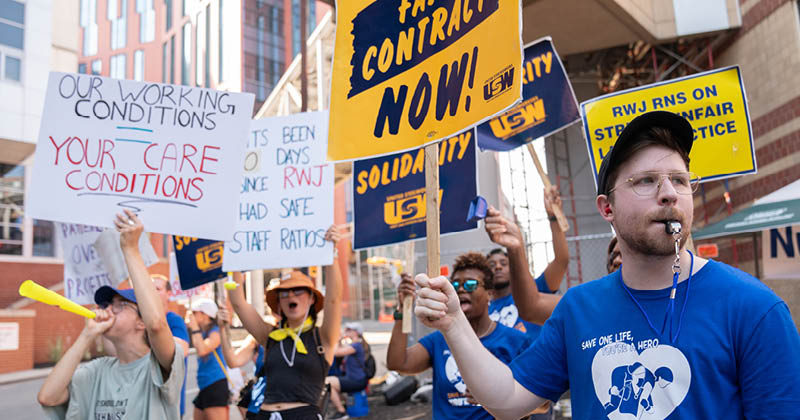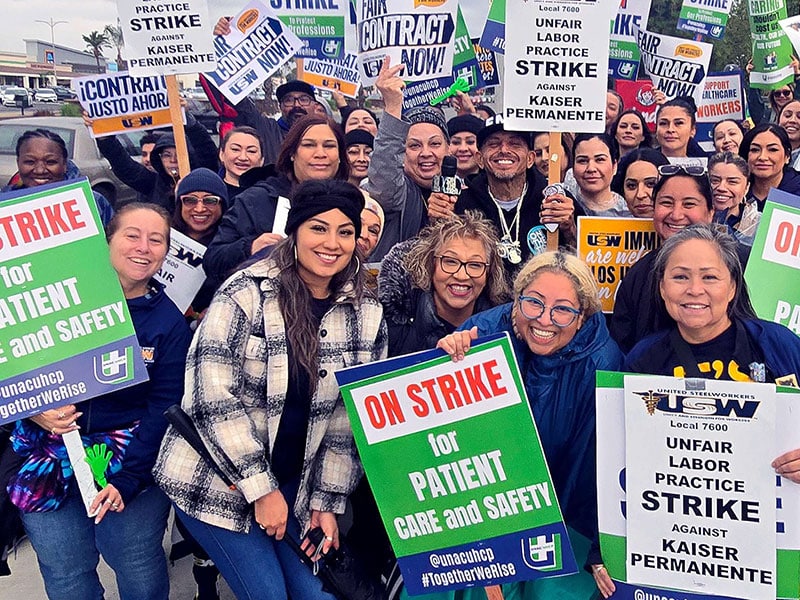Nurses Fight for Safe Staffing: Front-Line Health Care Workers on ULP Strike at a New Jersey Hospital

Nearly 1,700 members of Local 4-200 who work as nurses at New Jersey’s Robert Wood Johnson (RWJ) University Hospital launched an unfair labor practice strike this August.
Negotiations for a new contract began in April and broke down in August over the issue of staffing. The chief goal for members in the negotiations, local president Judy Danella said, was to push the hospital to hire more nurses and adopt enforceable staffing standards, but the hospital did not take nurses’ demands seriously.
“We are the ones that made this hospital a Level 1 trauma center, a comprehensive stroke center, a comprehensive cancer center,” Danella said. “We are not disposable. We will be unified.”
A Daily Struggle
The RWJ nursing staff continued to work through COVID and other major crises, she said, and despite those sacrifices, has continued to face short staffing nearly every day.
“We are dedicated nurses that go above and beyond for our patients,” she said. “It’s very simple. We would like to have the right amount of nurses for the right amount of patients.”
That number, members say, differs by department and depends on the severity of patients’ conditions. But a bill before the New Jersey legislature would establish minimum nurse-to-patient ratios across the state, and members say that if it were to become law, their strike would be unnecessary.

A recent study showed that New Jersey had the third-worst nursing shortage in the nation, behind only Texas and California.
Local 4-200 members participated in a rally in support of the staffing legislation this May at the state capitol in Trenton, with much the same message they’re delivering on their picket line each day, chanting, “safe staffing saves lives” and other slogans meant to draw attention to the crisis.
“We need something that is enforceable that the hospital holds to,” Danella said, “not just a number on a piece of paper.”
‘Heartbreaking’
RWJ management has continued to operate during the strike by hiring scabs to work for $300 an hour in addition to paying for their lodging and travel expenses.
The cost of paying those replacements, members say, far outpaces what it would cost for RWJ to simply agree to hire more nurses.
“It’s insulting and heartbreaking,” said nurse Carol Tanzi. “Because we are the nurses who built this hospital.”
Picket Line Support
Throughout the strike, the USW nurses received support from patients and their families, members of other local unions, local clergy and community leaders, and elected officials both near and far.
Members held marches, candlelight vigils and other public events, gaining an increasing amount of news coverage and public support.
U.S. Rep. Frank Pallone of New Jersey, State Sen. Linda Greenstein and others showed up on the picket line to show support for the workers, while U.S. Sen. Bernie Sanders of Vermont wrote a letter to hospital CEO Mark Manigan urging the company to negotiate a fair end the strike.

“It is absurd for [Robert Wood Johnson] to claim it can afford to pay its executives millions, yet is somehow unable to provide its nurses fair raises,” Sanders wrote. “That is simply unacceptable.”
Best Care Possible
Despite the public outcry in support of the nurses, the company continued to resist members’ demands as the strike neared the three-month mark, and nurses remained on the picket line as this issue of USW@Work went to press after voting in mid-September to reject a proposed three-year deal.
Local 4-200 member Jessica Newcomb said she has considered leaving the nursing profession because of the lack of adequate staffing at the hospital.
“I have gone home crying, I have gone home feeling defeated,” she said. “If it’s not us that stands up for our patients, then no one else will.”
The need to do the right thing for their patients ultimately was what led the nurses to take their fight to the picket line.
“At the end of the day, we want to give the best care that we can,” said nurse Nina Kesley. “And right now, we’re just not able to do that.”

By clicking Sign Up you're confirming that you agree with our Terms and Conditions.
Recent News Articles
Want to Learn More?
See how the USW is making a real difference in our communities and our workplaces.

